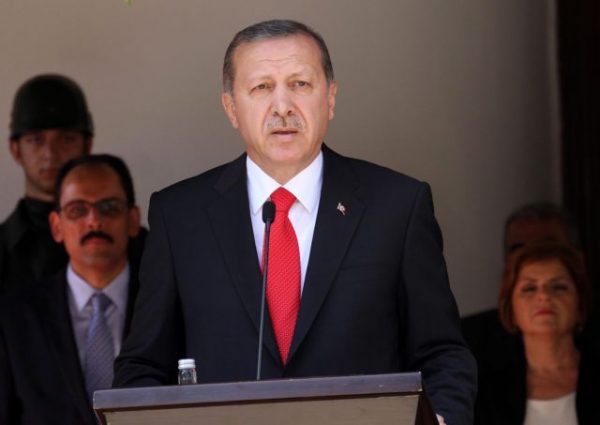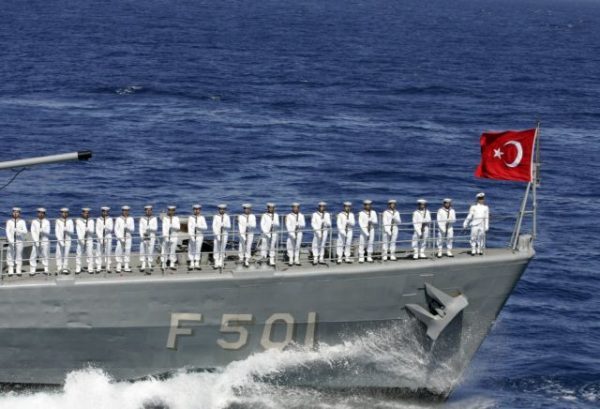Since the beginning of the war in UkraineThe Recep Tayyip Erdogan He tried to adhere to the principle of “I live with everyone”, while showing strong activity at the diplomatic level to solve various issues.
For years, it has also followed the “one foot in NATO, the other foot in Russia” tactic. This tactic, however, was undone when Russian President Vladimir Putin Partial recruitment announcement, as noted by an analyst at Carnegie Endowment for International Peace.
Read also: “A domestic hot episode will not go unanswered – it will mean an all-out struggle”
The Kremlin’s new tactics – with Russian mobilization, referendums in Ukrainian cities under its control on joining the Russian Federation and nuclear threats – are a game-changer in international relations. The Biden administration, France, the United Kingdom and NATO are already adjusting their strategies. China and India have also begun to modify their statements, and Turkey is being asked to review its policies.
For Turkey in particular, Putin’s new threats have dire consequences. If Russia did decide to actually use tactical nuclear weapons (or any weapons for that matter) against a portion of NATO territory, Ankara would be bound by Article 5 of the North Atlantic Treaty, and thus see the “balanced policy” of breaking it down immediately.
However, at the same time, Ankara remains under heavy pressure from the Kremlin in the military, finance, tourism, trade and energy sectors, and is dependent on Putin to continue implementing or modifying the grain deal. 
Putin destroys his role in ‘peacemaking’
At the same time, the analyst stresses that the more the situation escalates in Ukraine, the more difficult it will be for Erdogan to play the mediating role.
“Which Ukrainian leader, or Western leader, would be willing to come to Istanbul and discuss a ceasefire or the safety of a nuclear power plant, when Ukraine and the West are under threat from Russia’s weapons of mass destruction? The Kremlin’s egregious stance has raised questions about Turkey’s vaunted “closeness” to Putin “.
Read also: Putin crossed the Rubicon – the extreme scenario after the annexation of Ukrainian territory
Eastern Mediterranean
The third complexity identified by the analyst relates to the eastern Mediterranean and the Middle East, especially for Cyprus, Greece, Israel, Egypt, Lebanon, Libya, Palestine and Syria.
The analyst notes that this region is central to Turkey’s foreign policy: “The issues in this region are still important, but they have been suddenly overshadowed by recent Russian threats. As a result, Turkey’s ability to exercise its influence or pursue its interests in its neighborhood has diminished.” 
Difficult balances
“Ultimately, Turkey now faces harsher realities. The country is still highly dependent on economic relations with Western countries, especially the European Union. Russia or the Gulf states can only provide it with limited financial support. Its assertive positions on Cyprus, Greece or Syria objections from the Western community or Russia, as the case may be.
In one case, it is rumored that the Kremlin’s objections to a fifth military operation in northeastern Syria prompted Turkey to send its intelligence chief to Damascus for rare high-level contacts. It is impossible to predict the short-term results of such discussions, but they represent a marked change in Ankara’s position.”
Read also: The extreme scenario of a Greek island surrounded by Turkish ships – the trap that Athena must avoid
The publication indicates that Erdogan is in a difficult position, considering that he may review his previous behavior, given that he is also under pressure from within the country due to the economic situation and dissatisfaction with the high cost of living.
“History has shown that he is a pragmatist who can proceed with stunning political setbacks,” says the analyst, noting that it is difficult to predict how the Turkish president will play his cards in the coming weeks.
“What we know now is that he will navigate these difficult seas with one goal in mind, which is to secure his re-election as president in June 2023. With regard to Turkey’s foreign policy, this means one thing: it will be much more difficult to predict.”





More Stories
F-16 crashes in Ukraine – pilot dies due to his own error
Namibia plans to kill more than 700 wild animals to feed starving population
Endurance test for EU-Turkey relations and Ankara with Greece and Cyprus